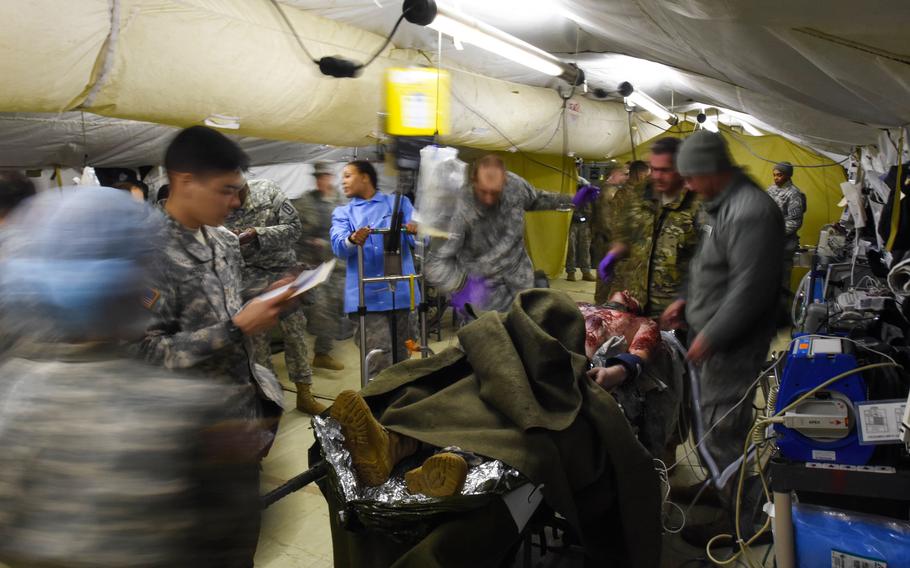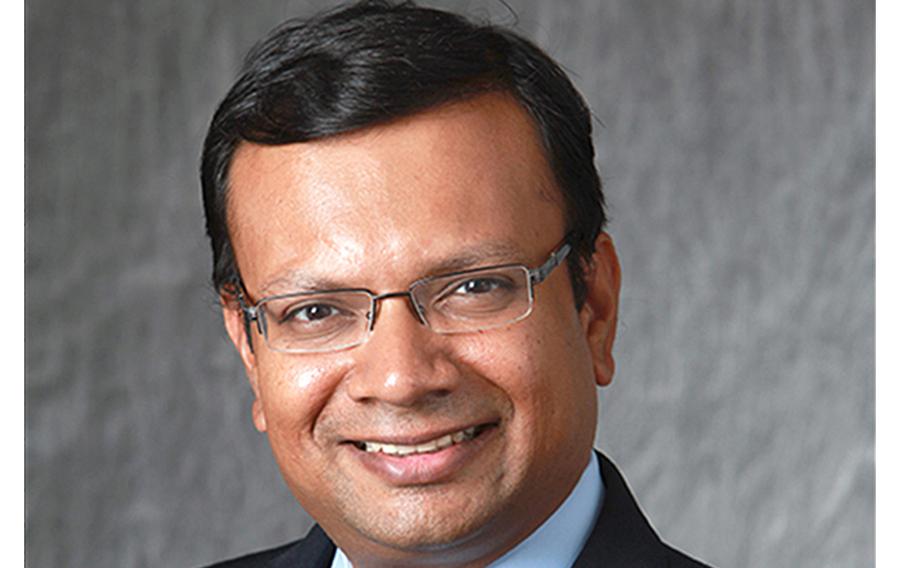
U.S. soldiers treat a mock burn victim during an exercise in Germany in 2016. A five-year Army study in Florida will use ultrasound to examine burn wounds and allow for better understanding of how to treat them. (Jeku Arce/U.S. Army)
The Army is collaborating with two Florida universities on a $1.3 million research project using artificial intelligence and ultrasound to evaluate combat-related burn injuries as the service seeks to improve soldiers’ recovery outcomes.
The five-year study will evaluate the characteristics and healing trajectory of burn wounds, Florida State University said in a statement Wednesday. The other college is Florida Agricultural and Mechanical University, also know as Florida A&M.
Improvised explosive devices, a significant source of wounds to service member in Iraq and Afghanistan, accounted for more than 80% of combat burn injuries from 2001 to 2018, according to the Army.
With that in mind, the service is preparing for a future in which current treatments will not be enough to minimize the risk of death from burns caused by advanced weaponry.
University researchers will work with the Army Combat Capabilities Development Command Soldier Center in Orlando, Fla.
The idea is to develop tools via deep learning that enable battlefield medics to diagnose the severity of a burn, such as its depth, more quickly and reliably.
Traditional diagnostic techniques don’t give accurate measurements until about three weeks after the injury, the statement said. Earlier, more accurate assessment of burn wound severity allows for faster application of treatment, it added.

Suvranu De, dean of the Florida Agricultural and Mechanical University-Florida State University College of Engineering, will lead a cooperative research project with the Army that uses ultrasound to examine burn wounds. ( FAMU-FSU)
“(On) the battlefield, they need to rapidly decide on a treatment paradigm,” said Suvranu De, dean of Suvranu De, dean of FAMU-FSU College of Engineering. “Do they apply medication, or do they recommend surgery preemptively? That’s a big decision.”
De and his team will develop their technique with B-mode ultrasound, commonly used for monitoring pregnancies. Portable devices with the same technology could be used at forward operating bases, researchers said.
The work also will focus on the development of standards for realistic simulators for burn wound management. Those benchmarks would allow the military to aptly use emerging technologies from private companies in developing ready-to-use applications, the university said.